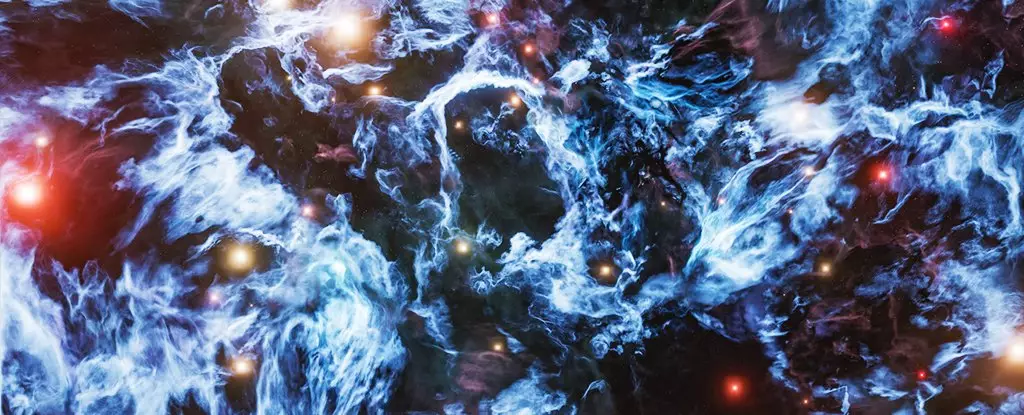In the realm of physics, Albert Einstein’s theory of general relativity has stood the test of time for over a century. Its ability to predict phenomena such as black holes and guide modern technologies like GPS is unparalleled. However, as technology advances and scientists delve deeper into the cosmos, discrepancies in the theory have started to emerge. When observing clusters of galaxies spanning vast distances, the laws of gravity described by Einstein’s theory seem to falter. This cosmic glitch, as described by researchers from the University of Waterloo and the University of British Columbia, challenges our understanding of the universe on a grand scale.
The discovery of this cosmic glitch occurred during the examination of the cosmic microwave background (CMB) radiation, a remnant of the Big Bang. By comparing observational data with theoretical models based on general relativity, researchers found that there was a significant deviation. Adjusting Einstein’s theory to accommodate a 1% deficit in gravity brought the model closer to the observed data. While a 1% variation may seem minor, it suggests the need for a reevaluation of the fundamental principles governing our understanding of the cosmos.
The implications of this cosmic glitch extend beyond theoretical physics. The discrepancy could potentially offer a resolution to the long-standing problem known as the Hubble Tension. Conflicting measurements of the universe’s expansion rate have perplexed astronomers, with some regions appearing to expand faster than others. By introducing a 1% weaker gravity component at larger scales, the Hubble Tension could be mitigated, aligning local observations with the standard model of physics. This newfound explanation sheds light on the complexities of the universe and hints at the need for alternative interpretations.
As researchers delved deeper into the cosmic glitch phenomenon, they recognized the need for innovative approaches to address the inconsistencies in our understanding of gravity on a cosmic scale. The study opens the door to unconventional ideas and challenges the boundaries of existing theories. The prospect of revisiting our understanding of gravity in the distant universe presents an exciting opportunity for scientific exploration.
Moving forward, scientists are eagerly awaiting new data from instruments such as the Dark Energy Spectroscopic Instrument (DESI), which promises to provide a comprehensive 3D map of the cosmos. By examining the effects of dark energy alongside gravity, researchers hope to uncover further connections between these cosmic glitches. While the future remains uncertain, the pursuit of knowledge beyond the confines of general relativity offers a glimpse into the vast mysteries of the universe.
The discovery of the cosmic glitch challenges the fundamental tenets of Einstein’s general relativity and beckons researchers to explore uncharted territories in the realm of cosmic physics. As we continue to unravel the mysteries of the universe, the quest for answers beckons us to push the boundaries of conventional thinking and embrace the unknown.


Leave a Reply